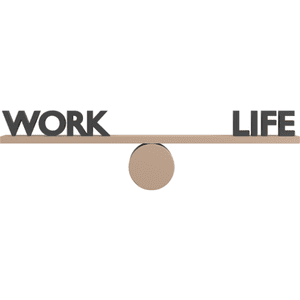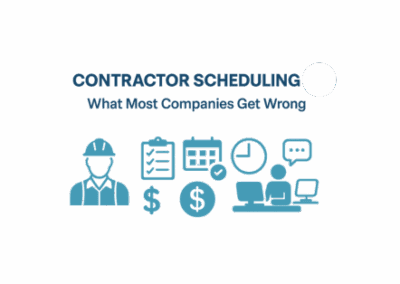As an employer, you understand the value of highly motivated and well engaged employees. These employees are generally the most productive, and therefore the most profitable employees in the workforce. Just for a second, imagine a workplace where all employees were inspired and passionate about their role in the company.
The workplace culture would be healthy, employee turnover and absenteeism would be low, and overall performance would be high. Yes, this sounds too good to be true, but it’s not impossible! There are organizations out there that utilize employee motivation strategies to ensure that their workforce is well optimized.
Why is Employee Motivation so Important?

It could be argued that employee motivation is key to an organization’s success. Without it, employees work slower, avoid important tasks, and are easily distracted from their work. Even more than that, they are disengaged, and have no actual care for the work they do.
When employee motivation is low, time and money are wasted, and there is often a knock-on effect to other employees. As a result, targets aren’t reached, standards are low, and productivity takes a hit across the board.
On the flip side, when employee motivation is high, employees tend to take pride in their work. This means they dedicate themselves to their work, accomplish tasks quickly, and recognize the needs of the company. In short, employee motivation directly impacts both revenue and output.
Different Types of Employee Motivation
When it comes to motivating your employees, there are 2 main approaches you can take; intrinsic vs. extrinsic.
Intrinsic and extrinsic motivation are two key types of motivation that influence how and why employees perform at work, each shaping the workplace environment in distinct ways. Understanding the difference between them is essential for creating an effective motivation strategy.
Intrinsic Employee Motivation
Intrinsic motivation comes from within an individual. It’s driven by personal satisfaction, interest, or the joy of performing the task itself. When employees are intrinsically motivated, they engage in their work because they genuinely enjoy the process or feel it is fulfilling.
For example, an employee might be motivated to complete a project because they find the task intellectually stimulating, or they feel a sense of pride in contributing to a meaningful outcome for the company. An intrinsically motivated employee is likely to take initiative, seek improvement, and explore creative solutions simply because they are passionate about their work.
Extrinsic Employee Motivation

On the other hand, extrinsic motivation comes from external factors, typically rewards or recognition. Employees motivated extrinsically perform tasks not necessarily because they enjoy them, but because they expect to receive something in return. These external rewards can take various forms, such as a monetary bonus, public recognition, or a promotion.
For instance, an employee may work harder to meet a sales target because they know a bonus awaits if they achieve it, or because they’re aiming for a promotion that requires a proven track record. Extrinsically motivated employees are often driven by tangible incentives that reward their efforts and accomplishments.
In the workplace, it’s common for both types of motivation to coexist. An employee might find personal satisfaction in completing a challenging project (intrinsic motivation) while also anticipating a reward, like a raise or added responsibility, as a result of their efforts (extrinsic motivation). A well-rounded approach to motivation considers both intrinsic and extrinsic factors, helping create a workplace where employees are driven by both a love for their work and the rewards that come from a job well done.
So, what strategies can you utilize to manage employee motivation?
How to Improve Employee Motivation in the Workplace
It takes ongoing effort and strategizing to ensure employee motivation remains high in your workplace. Here are some great strategies to help you achieve that.
Communicate the “why”
Most employees know what they need to do on a day-to-day basis, right? But how many of your employees understand why they’re doing what they’re doing? As a manager, you should always make sure that every employee understands how their individual contribution is adding to the overall goals of the company.
Lead your employees to the future

Another great way to manage employee motivation is to provide a clear vision of the future. Show your employees what is possible in the future if the company is successful. When your employees have something to work toward, it’s much easier for them to stay motivated.
Set clear goals on a frequent basis
While it can be easy to set goals and targets on an annual basis, this isn’t the best employee motivation strategy. Behavioural psychology shows that people respond positively to achievement, no matter how small. So, when you set your larger annual targets, be sure to break it into smaller goals that are attainable for your team. As employees hit their targets more frequently, they are more satisfied in their job and overall employee motivation increases.
Recognise and reward the work of your employees
Most managers know that recognition and reward are key to employee engagement. They are also a great strategy for employee motivation. When employees know that their managers appreciate their hard work, they tend to continue working hard.
Simply recognising the hard work might be enough, but it certainly helps to reward employees if they go above and beyond. The reward itself doesn’t have to be anything specific, but there are certain things that work well when it comes to employee motivation.
Monetary bonuses, an extra day off, or a team building event outside of the workplace always tend to be well received. You can use rewards to motivate your employees to work hard, and also to help encourage employee retention. Some companies have large rewards for 10 or 20 year anniversaries such as a paid trip away or increased shares in the company.
Encourage employee autonomy
Now, more than ever, employee autonomy is high on the list of the employee wish list. When employees do not feel in control of their time and energy, motivation takes a hit. There are countless ways to introduce autonomy into your workplace.
Our workforce management software gives you the ability to provide self-scheduling and shift bidding options to your employee scheduling process. Introducing elements of autonomy provide employees with reassurance that you trust them. This improves employee motivation, because employees are satisfied with the work they have achieved on their own terms.

It can also give employees an improved work life balance. Work-life balance has a profound impact on employee motivation. When employees feel that they have enough time and energy to devote to both their personal lives and professional responsibilities, they tend to be more motivated and engaged at work. Maintaining a balance allows employees to manage stress, reduce burnout, and feel more satisfied with their jobs, all of which directly impact their motivation levels.
Create a Positive Work Environment
Naturally, employee motivation thrives in a positive work environment. In a toxic workplace, your employees are simply waiting for the end of their shift. Consider how motivation and mood go hand in hand, so a negative environment will only dampen employee motivation. Create a company culture that your employees actively look forward to working in every day.
This doesn’t necessarily mean the office has to be fun and comfortable. The workplace culture is actually what contributes to employee motivation. Management should be approachable, teams should work and communicate together, and there should be an element of camaraderie. Training and development is a factor here too.
When employees have something to work towards, the feel motivated to learn and grow, which motivates them to work hard long term.
There are lots more ways to encourage employee motivation, like ensuring your benefits package is attractive, and that employees have a clear idea of their potential career path. We could list endless ideas here, but generally, it’s simply important that you are putting time, energy and money into your efforts. The potential return on your investment is huge, as both productivity and profitability soar when motivation is high.




